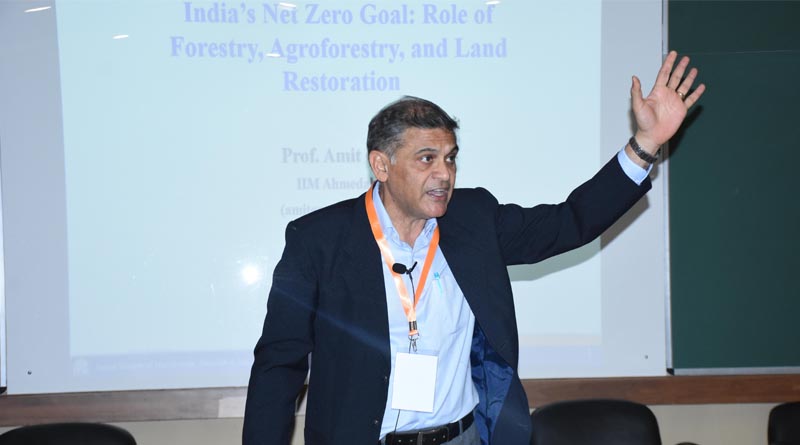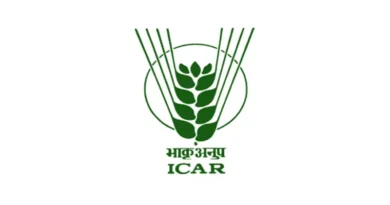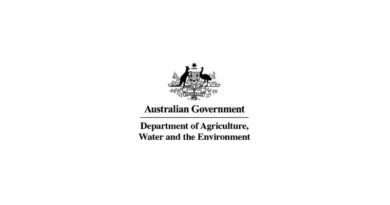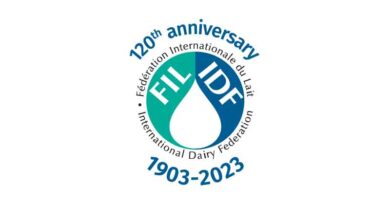Advancing Towards Net Zero: International Workshop at BITS Pilani Goa sheds Light on Forestry and Agroforestry Strategies
13 December 2023, New Delhi: The Department of Humanities and Social Sciences of BITS Pilani Goa, in partnership with the IUCN CEM Forest Specialist Group, CEM South Asia, the Goa State Biodiversity Board, and CEEW, New Delhi has successfully hosted a One-day International Consultative Workshop titled ‘Role Of Forestry, Agroforestry, And Land Restoration in Achieving Net Zero in the Asian Region’.
The primary objective of the workshop was to formulate a comprehensive roadmap or guideline document for assessing the pivotal role of forestry and agroforestry-based strategies in supporting national Net Zero Goals. Furthermore, the workshop aimed to identify challenges, hurdles, and roadblocks hindering the realization of mitigation potential from these sectors. It also sought to foster collaboration and partnerships among various organizations in Asia dedicated to these sectors.
The event saw participation from distinguished guests like Professor Mohan Kumar B, Former Vice Chancellor of Arunachal University and one of the authors of the National Agroforestry Policy, and Prof. Amit Garg, Professor, Indian Institute of Management, Ahmedabad. The event also witnessed the participation of Mr. Namgyel Wangdi, Senior Programme Officer of Bhutan Ecological Society, as a speaker. Mr. Wangdi shared insightful perspectives on Bhutan’s remarkable success in attaining the Net Zero goal, emphasizing the significant contribution of the forest sector. The workshop welcomed the Chief Wildlife warden of the State of Goa Mr. Umakant and Dr. Pradip V Sarmokdam, Nodal Officer, Climate Change, State of Goa. Additionally, the workshop welcomed Mr. Anindya Bhattacharya, Celestial Earth, the agency entrusted with formulating the Net Zero Strategy for the state of Goa.
Speaking on the occasion, Prof. Dr. Rajiv Kumar Chaturvedi, Associate Professor BITS- Pilani, Goa Campus said, “Different modeling studies suggest that despite best efforts and most optimistic scenarios, there will still be considerable residual emissions towards the second half of the century, in this context forest sector can play an important role in bridging a part of this emission gaps”. He further said, “BITS Pilani’s Goa campus has considerable expertise in this area and we are associated with India’s official national Greenhouse gas inventory program.”
As we reflect on the success stories shared, let us collectively harness the wisdom of Bhutan’s accomplishments, ensuring that our state reaps the full benefits of sustainable practices and learnings from there. I emphasized the idea of ‘think global but act local,’ meaning we should have big goals but also take practical steps in our communities. This guides our work as we try to manage and care for forests in the best way possible.”
Setting the broad context for Net Zero, Prof. Amit Garg, IIM Ahmedabad said, “The Government of India has made commitments to reduce emissions and increase non-fossil electricity generation. It’s like setting goals for a better future. Achieving Net Zero by 2070 is a big challenge, but with smart state-level policies, it’s possible. I’m encouraged by Gujarat’s commitment to becoming Net Zero by 2070, showing that change is happening at the regional level for a greener tomorrow.”
The discussions centered around the critical role of agroforestry, Land-Use Change, and Forestry (LULUCF) sector in achieving Net Zero goals on both national and global scale.
Also Read: High Sugar Prices Create Signs of Substitution Among US Manufacturers
(For Latest Agriculture News & Updates, follow Krishak Jagat on Google News)















